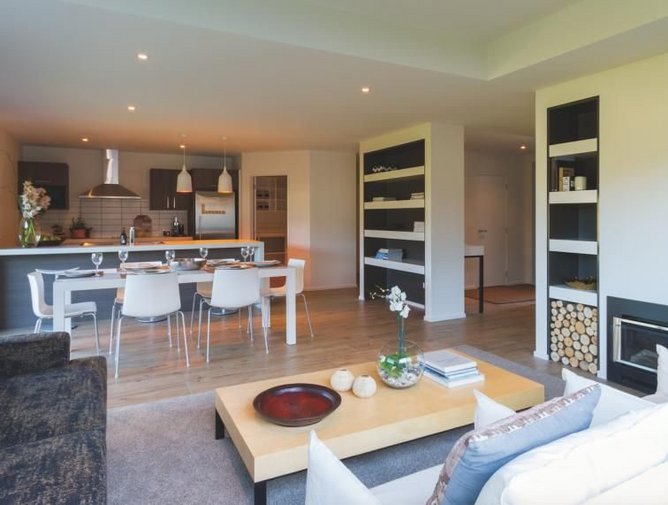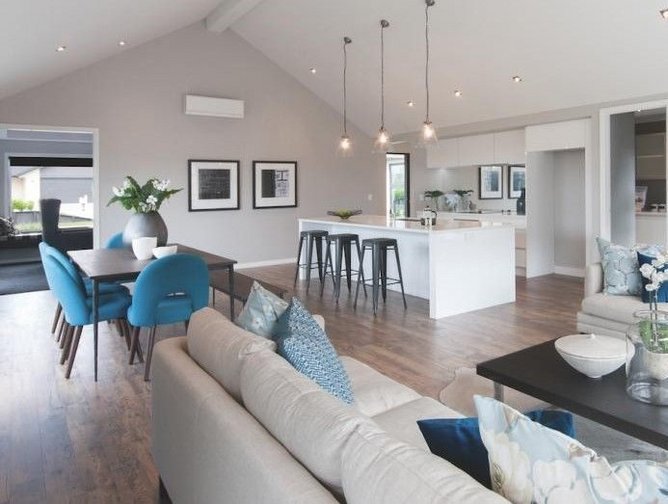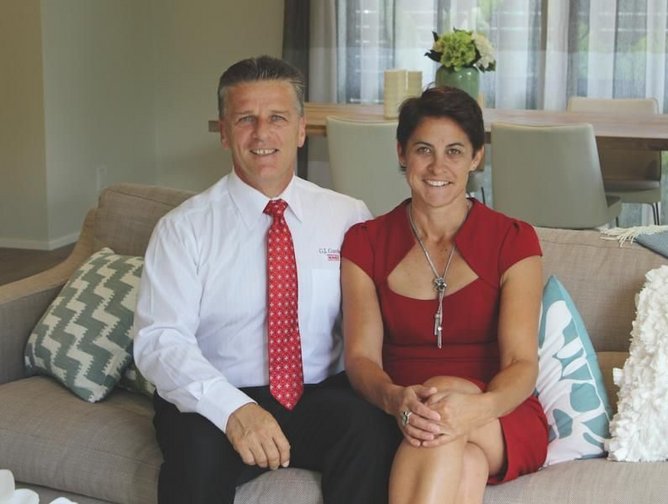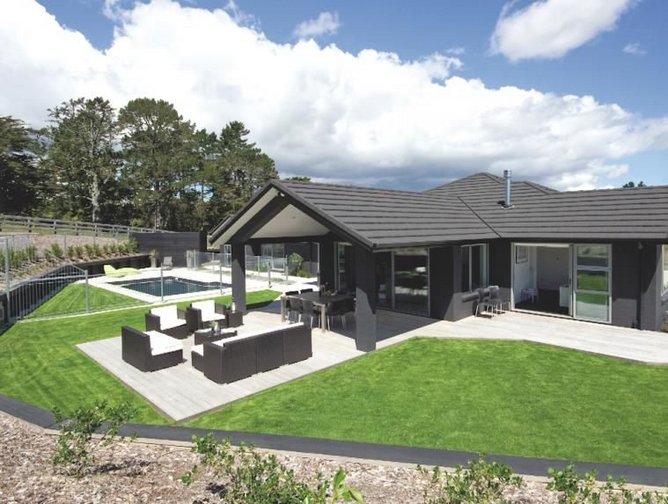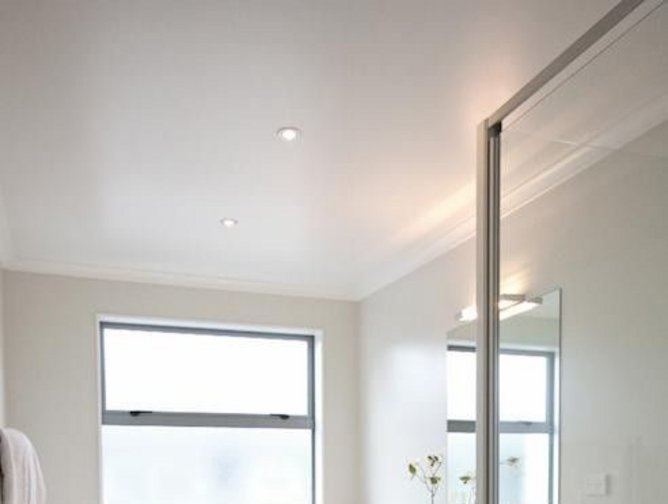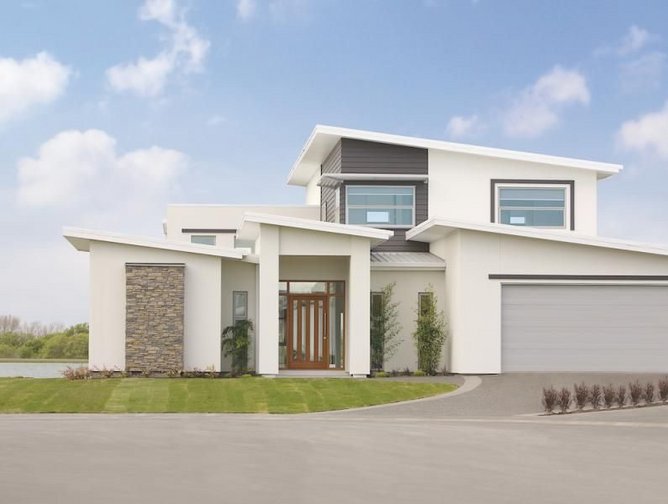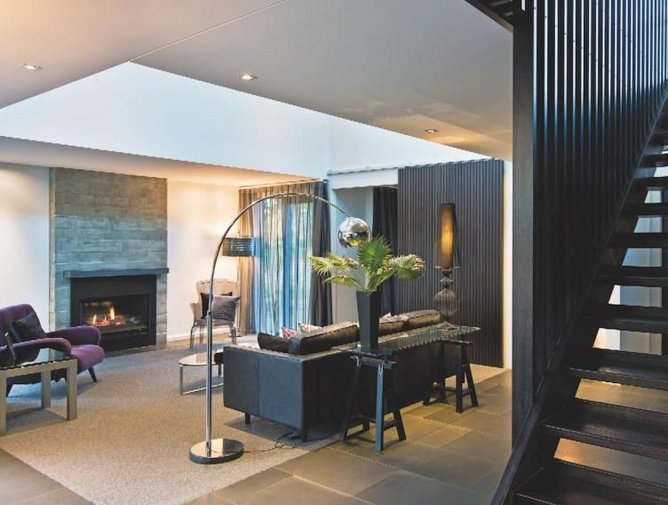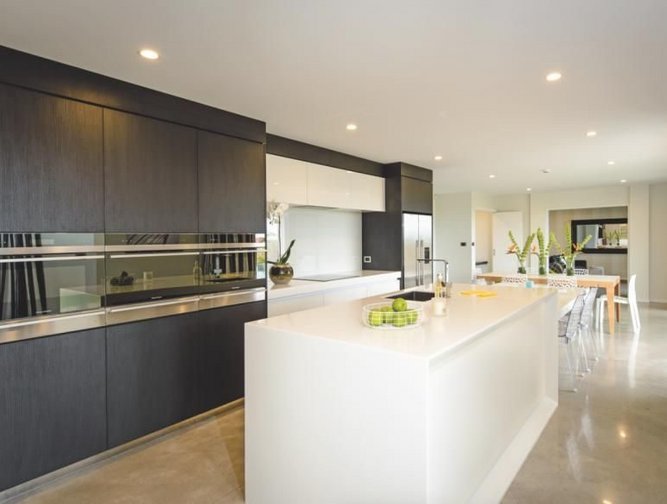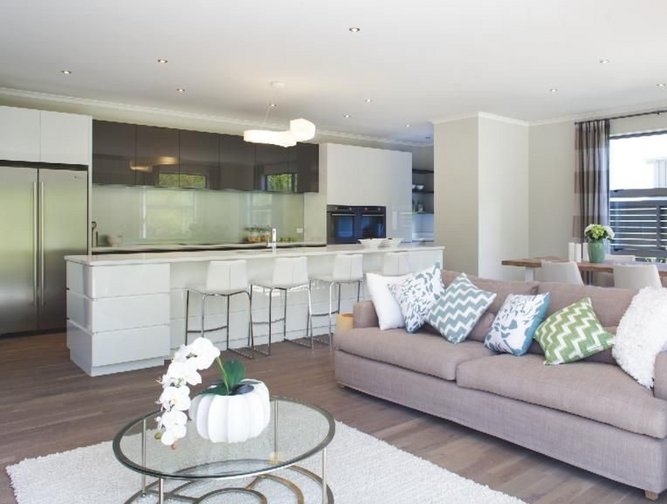There are certain things that one can simply luck through in life, be they winning the lottery or not catching a cold. However, nowhere is that principle less true than in the solid business that G.J. Gardner Homes NZ (G.J. Gardner) has been shaped into over time.
G.J. Gardner was founded in 1983 by Greg Gardner. According to the G.J. Gardner website, a young Greg saw a market in desperate need of a better option in the residential construction company sector; an area that he saw as suffering from a lack of quality options at the time.
“Greg commenced his own building company, basing his business around uncompromised quality and value, with homes designed to meet individual customer needs and built to a committed time frame,” the G.J. Gardner website reads. “The formula was such a success that G.J. Gardner Homes grew to be Queensland's largest home builder and in 1995 Greg decided to franchise the business with locally owned offices using the same proven formula to build quality homes right across Australia.”
In 1997, a key franchisee inquired about opening a G.J. Gardner franchise in New Zealand, officially opening the door for what would become the country’s number one residential building group.
G.J. Gardner Homes in New Zealand
“We started [in New Zealand] as a business that hadn't operated in this market— we had no brand recognition, no base, nothing,” said Grant Porteous, co-owner of the G.J. Gardner NZ master franchise company. “The company had a reasonable start, but then the wheels started to get a little wobbly, and I was brought into the business in 2002 to run the New Zealand master franchise company.”
Grant is nothing if not humble. Taking a more hands-on approach to management, his attention to detail and quality above all has shaped G.J. Gardner into a major force in New Zealand in a relatively short amount of time. Throughout this he has worked closely with his partner and wife, Ellie.
“[2002] was when we really looked to change the business and the way we operated,” Grant said. “We refined our values and who we were; the things we wanted to be revered or famous for, both with our clients and within our industry. We wanted to set a new direction going forward and that's the path we've remained committed to.”
The pair are now free to implement whatever strategic changes they deem necessary. As of the end of March 2015, Grant and Ellie Porteous secured the remaining 25 percent of Deacon Holdings Ltd; the holding company for G.J. Gardner in New Zealand.
“In comparison to some other building franchises in New Zealand, we have a long-term focus,” says Ellie. “We're the top building brand in this country, yet to buy one of our franchises is often cheaper than to buy one of our competitors. We do that on purpose because we understand some of the issues around setting up a new business. We'd rather not have them cash-strapped in the beginning and prefer they have a long-term focus where they will still be with us in five to ten years, rather than us making more income up front but having a franchise that's not economically viable.”
“Our people, our teams, create our success and bring the vision to reality, so we chose on heart, those with big tickers,” Grant adds. “I call them ‘good buggers,’ an old New Zealand colloquialism for real, genuine, hard-working people.”
Part of this success is the focus on an old-fashioned, family orientated approach to doing business, backed by a foundation of professional standards, systems and processes. With every franchise being 100% family owned this culture works extremely well.
To ensure smooth business operation, Grant says he often travels across New Zealand, a country roughly the size of California. He checks in with the different franchises and conducts quarterly business performance reviews. When he travels he says he doesn’t stay at a motel but rather stays with the franchisees, in their homes to get to know their families.
“We're really a business that has managed to develop a fantastic team culture and still have, to a degree, a family culture,” he said. “To give you an idea, I was just visiting franchisees up north recently. I had to stay at their homes, that was just a given, I didn't want to insult them by staying at a hotel. But the eldest sons and daughters came from living away to have dinner and a catch-up. So when you've got a twenty five year old that you used to know as an eight year old dropping by to have dinner with you, it's kind of special.”
Company Culture
Whilst many business owners talk about building a company culture that feels like a family, most fall short in actually implementing that. For Grant and Ellie that wasn’t an option.
“We want to be revered for being an organization of integrity, and one you can be proud to be part of,” Grant said. “We want people to walk around with our brand on their chest and say to us, which they do, ‘Oh, you work for G.J. Gardner. What a fantastic business to work for.’ And that's what we get all the time.”
This is a common theme throughout, with many of their supply relationships over a decade old, secured with only a handshake. Grant prides the business on forming effective supply partnerships which reduce cost to serve and increase efficiencies. This attitude of professionalism and ethics is encouraged throughout the entire network, with joint success paramount.
“Most things in our business are driven back to: 'Does it add value for our franchisee?' and 'Does it add value for our customer?' If not, why would we do it?” Grant said. “When I get to do some work with other franchise groups in New Zealand, in the food industry or other sectors, they always tend to have a focus on themselves as a franchisor and their income. They seem like they look down on their team. We've always looked at it the other way. Our franchisees’ success is ultimately our success and every one of them actually forms a brand.”
That same consideration is paid to customers through a comprehensive plan that ensures open communication between G.J. Gardner and its clients. The process starts with a speedy response to the customer’s initial inquiry. From there, employees try to estimate the cost for the client as quickly and as accurately as possible, whilst explaining anything the customer is confused about.
“We actually have what we call our Customer Service Standards Protocols in our business, which was agreed by the team to be the minimum actions that we do for every customer,” Grant said. “’We will contact you at these agreed upon times throughout the build; we will invite you to the site this number of times.’”
10,000 Built
The dedication to being known not only as an extremely skilled and efficient company, but also as one that cares about the customer’s experience from commencement to completion, is a trait that has already carried the company extremely far. Earlier this year G.J. Gardner completed its ten thousandth build, a major milestone along the path the company has walked down for decades.
Grant is hesitant to assign that honor to any one factor.
“I think it's been from doing a myriad of things well,” he said. “We really did drive ourselves on being a great franchise network throughout the team. We are clearly great marketers of our brand in New Zealand. What was considered a paltry budget [in advertising] would make us a household name. We invested heavily in our wonderful testimonial and TV campaigns that have been absolute top quality, showing our full range of skills in the homes that we build.”
He added, “It's about being a good support office and helping our franchisees be as successful as they can be in their individual markets, which then creates a greater team and a greater good. We generally put ourselves second in the income stream, but by doing that, we are rewarded in the long-term.”
The Future
Grant and Ellie both make it very clear that whilst they don’t have a lot of room left to expand in New Zealand, they’re not finished trying to improve.
As part of their standard practices in dealing with customers surveys are sent out after the completion of every job. These surveys are intended to allow the customer to provide feedback that could help the company improve its practices.
Clients are encouraged to rate the company on everything from overall job satisfaction to the attitude the crew had in dealing with them. Whilst the questionnaires are about 60 questions long, according to Grant it’s only the first couple that truly matter; “would you build with this franchise again?” and “would you recommend this franchise to a close friend for their build?”
“What we do after those key questions, we ask them how they would rank the franchise’s performance overall [on a scale of one to 10],” Grant said. “Research shows that if people do not score you above an eight, they are not truly an advocate, even if they said that they would definitely recommend us. We therefore only count the ‘yes’ scores above this level.”
That sort of feedback is vital to the organization, allowing it to respond to criticisms along every step of the company’s journey. It helps shape the vision and direction for G.J. Gardner, forcing Grant and Ellie to ask themselves what kind of company they want to run.
“We've always just had two or three long-term focuses for our brand. For everything we do, we ask ourselves, 'Who will we be in the next five years?', 'How will our business look in the next decade?' and 'Will we be able to sit back in our rocking chairs in our 70s or 80s and still see this as New Zealand's number one building group?’
For now, the company seems to be on track.
